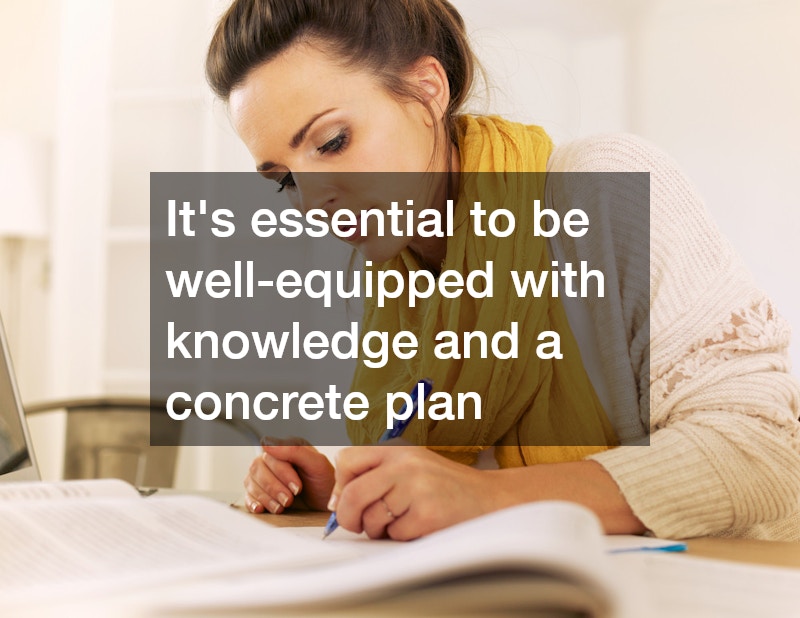Embarking on the journey to purchase a home is both an exciting and challenging adventure. Whether you are a first-time homebuyer or looking to upgrade your current living situation, there are numerous factors to consider before diving headfirst into the real estate market. This article will outline the top 10 things to know before looking at houses for sale.
Set a Realistic Budget
Understanding your financial limits is the first and most crucial step when looking at houses for sale. It is vital to take into account not only the home price but also closing costs, taxes, and potential renovations.
Consulting a financial advisor or mortgage broker can provide clarity and help establish a viable budget.
Preparing a detailed budget allows you to narrow down your choices and focus on homes within your price range. This clarity will streamline your search process and prevent the disappointment of falling in love with a home outside your financial reach. Remember, the objective is to find a home that suits not just your needs but also your financial capacity.
The housing market can be unpredictable, with fluctuating interest rates and changing prices, making budgeting a fundamental part of your home-buying journey. Each prospective homeowner must be prepared for potential financial challenges that can arise. Proper budgeting acts as a safeguard against future monetary strain.
Research the Local Market
Understanding the local market is essential when looking at houses for sale. Investigating market trends and average property prices in your desired area can provide insights into what is considered a fair price. Collaborating with a local real estate agent can offer valuable information regarding market fluctuations and neighborhood characteristics.
Knowing the market gives you a competitive edge, enabling you to make informed decisions when making an offer. Local market trends can affect negotiation tactics, making it crucial to have current and accurate data. Remember, the more informed you are, the better positioned you will be when entering negotiations.
Each neighborhood has its unique charm and potential growth trajectory. Taking the time to understand these nuances can significantly impact your decision-making process. A well-researched purchaser is often more adept at navigating the complexities of the housing market.
Prioritize Your Needs and Wants
When looking at houses for sale, differentiating between your needs and wants is imperative. Your “needs” are essential features the new home must have, while “wants” are desirable but not necessary. This prioritization prevents time from being wasted on viewing unsuitable properties.
To successfully prioritize, create a checklist of non-negotiable elements such as location, number of bedrooms, and proximity to schools or work. This list serves as a practical guide throughout the buying process. It allows home seekers to focus solely on properties that meet their essential criteria.
Being clear about needs versus wants will also facilitate discussions with your real estate agent. When agents have a precise understanding of your requirements, they can better tailor property options. A well-defined set of priorities enhances the overall efficiency of the home buying process.
Understand the Home Buying Process
The home buying process is complex, with multiple steps from initial search to final closing. Familiarizing yourself with each stage can reduce stress and enhance decision-making. Real estate professionals can offer guidance, helping you understand each phase thoroughly.
Understanding the process includes knowing the roles of different stakeholders involved, such as agents, inspectors, and closing attorneys. This awareness will prepare you for the series of negotiations, inspections, and paperwork necessary in purchase transactions. Educated buyers are more confident and typically encounter fewer surprises during the buying process.
It is equally important to align expectations with reality as you progress through each phase. Each house has its timelines and bureaucratic procedures to navigate, and being well-informed is a strategic advantage. Knowledge reduces apprehension, empowering you to make informed decisions throughout your home-buying journey.
Visit Open Houses
Open houses present an invaluable opportunity to evaluate properties firsthand before making a decision. They allow for a comprehensive assessment of spaces that photographs cannot always convey effectively. Plan multiple visits to diverse properties to widen your perspective and refine your preferences.
Attending open houses can provide contextual information about what homes in your desired area offer. It also allows for direct interaction with sellers or agents who can provide vital information. These events can indicate market conditions, showing how competitive a property is based on attendance.
Take note of the home’s layout, condition, and overall ambiance during these visits. Actively engaging and asking questions during open houses offers crucial insights into property features and neighborhood dynamics. Attendance builds confidence in your decision-making as you navigate the complexities of choosing the right home.
Factor in Additional Costs
Considering additional costs beyond the selling price is crucial when looking at houses for sale. These can include property taxes, insurance, utility setup, and home maintenance expenses. Preparing a comprehensive budget that factors in these other costs will prevent financial strain after purchase.
Unexpected expenses can quickly escalate if not anticipated. For instance, older homes may require more maintenance and repairs, which can add to your overall expenditure. Having a financial buffer in place allows for flexibility and prevents potential budgeting disasters.
Consult your financial advisor to identify potential hidden costs associated with homeownership. This detailed examination helps align your financial expectations with reality. Understanding all the associated costs ensures a smoother transition into homeownership.
Before starting your search for houses for sale, it’s essential to be well-equipped with knowledge and a concrete plan. Each of the outlined factors plays a significant role in ensuring a smooth and successful home-buying experience. When prepared both financially and mentally, the process not only becomes more enjoyable but also yields a rewarding and satisfying outcome.
.



